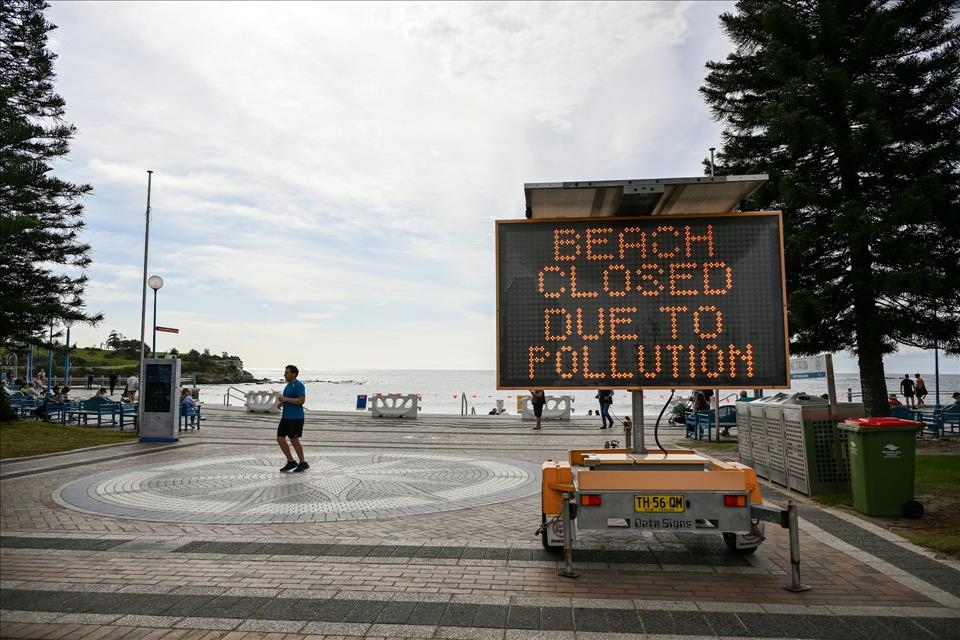
Mysterious Black Balls Have Washed Up On Sydney's Coogee Beach. Are They The Result Of An Oil Spill, Or Something Else?
The black balls were discovered on Tuesday afternoon. Randwick City Council
The balls were discovered on Tuesday afternoon. The local authority, Randwick City Council, says samples have been collected for testing, and the incident has been reported to the Environment Protection Authority and Beachwatch NSW.
A council spokesperson said the debris may be“tar balls” formed when oil comes into contact with debris and water – typically the result of oil spills or seepage.
I am a senior research scientist at CSIRO, specialising in environmental toxicity. While the objects could be tar balls, in my view, it is also possible they are something else. But in any case, the debris poses a potential risk to marine life and the public, and authorities were right to close the beach.
Strange black balls washed up on the Coogee shoreline. Steven Markham/AAP What are tar balls?
Tar balls are typically dark, sticky blobs found on beaches after an oil spill. They occur when oil comes into contact with the ocean's surface and becomes weathered by wind and waves. This breaks the oil patches into smaller pieces.
Tar balls usually form in a variety of shapes and sizes – ranging from big, flat pancakes to tiny spheres. The image below shows a typically irregular tar ball that washed up on an island in the United States.
Tarballs, such as this one found on Dauphin Island, Alabama, usually form in a variety of shapes and sizes. NOAA
On this basis, I am not certain the pieces of debris found at Coogee are tar balls. They certainly might be. I haven't seen them in person, but from the publicly available images, the objects appear to be relatively uniform, perfectly round shapes. That would be very unusual for tar balls – but not impossible.
The balls could be plastic debris washed off a container ship, such as squash balls or plastic used in manufacturing. But obviously, we have to wait until tests have been conducted on the objects before we can determine their origin and composition.
And finally, the balls appear to have washed up only at Coogee beach. It would be uncommon for oil spill remnants to drift to a single location unless the spill happened very close to shore.
What are the potential harms?Whatever the objects are, they could pose a hazard to marine life.
If the objects are sticky or oily, they may coat animals that come into contact with them. An animal that ate the objects may also be harmed. The balls would be difficult to digest and might stay in the animal's stomach for a long time, preventing it from eating other food.
If the objects are in fact tar balls, this is dangerous to animals because oil can be carcinogenic.
What should be done?Every precaution should be taken until we know exactly what these mysterious objects are.
Authorities are doing the right thing in keeping people away from the beach as the cleanup and testing continue. The public should heed official advice not to enter the beach and especially, not to touch the spheres.
At this stage, it appears no other beach is affected, so there are plenty of other nearby options for beach-lovers.
In the meantime, we should let the forensic scientists and other experts do their job.

Legal Disclaimer:
MENAFN provides the
information “as is” without warranty of any kind. We do not accept
any responsibility or liability for the accuracy, content, images,
videos, licenses, completeness, legality, or reliability of the information
contained in this article. If you have any complaints or copyright
issues related to this article, kindly contact the provider above.
















Comments
No comment